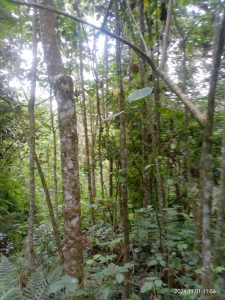Introduction: Nature as a Protagonist in African Literature
Discover how Ngũgĩ wa Thiong’o redefines environmental storytelling in African literature by portraying nature as a central character in the human narrative. Explore themes from Petals of Blood and Wizard of the Crow.
We often read novels for their human characters – their struggles, their triumphs, their flaws. But in the literary world of Ngũgĩ wa Thiong’o, the environment is not just a passive setting. It’s a living, breathing protagonist – a silent witness to human history, suffering, and transformation.
This is what places Ngũgĩ at the forefront of environmental consciousness in African literature. His works elevate the land from background to central figure, demanding we reconsider how we treat the world around us.
The Land’s Lament: From Nurturer to Exploited
In novels like Petals of Blood and Wizard of the Crow, Ngũgĩ shows how colonialism and capitalist greed severed the once-sacred bond between people and place. Fertile plains, once symbols of life and community, are transformed into scenes of degradation and loss.
“The environment in Ngũgĩ’s works is not a backdrop. It mourns, it bleeds, and it remembers.”
As forests are felled and rivers poisoned, the land becomes a victim – its suffering paralleling the dispossession of the people. The environmental damage is never just physical; it’s deeply moral and political.
Beyond Setting: Nature as a Moral Mirror
Ngũgĩ doesn’t simply describe the environment. He uses it as a moral compass, reflecting the decay of justice and leadership. Environmental exploitation in his stories often mirrors social and political corruption. In Wizard of the Crow, grotesque imagery of decay and pollution symbolizes a diseased system driven by greed.
This form of eco-criticism shows that environmental justice and social justice are not separate battles—they are one and the same.
The Interconnected Destiny of Land and People
Ngũgĩ masterfully weaves the idea that the fate of the land is inseparable from the fate of its people. As traditional, land-based livelihoods are erased, both human and ecological communities suffer. Forced displacement, urbanization, and environmental collapse are all symptoms of the same root illness: disconnection from place and purpose.
But Ngũgĩ also offers a vision of hope. In his children’s literature, such as the Njamba Nene series, he gently teaches young readers the value of environmental stewardship and restorative relationships with nature.
Conclusion: Listening to the Earth’s Voice
Ngũgĩ wa Thiong’o doesn’t just tell stories—he crafts literary ecosystems where land, people, and history are bound together. His work is a call to action: to see the Earth not as a resource, but as a companion, a witness, and a fellow sufferer.
In an age of escalating climate crisis, Ngũgĩ’s literature offers a spiritual and ethical framework for healing—where liberation is not only political but also ecological.
Ngũgĩ wa Thiong’o redefines the role of the environment in literature by presenting it as a central character, not just a backdrop. Through powerful allegories in novels like Petals of Blood and Wizard of the Crow, he links ecological devastation to social corruption and moral decay. His work insists that human freedom and environmental health are intertwined, offering a compelling vision for environmental justice rooted in African storytelling.

